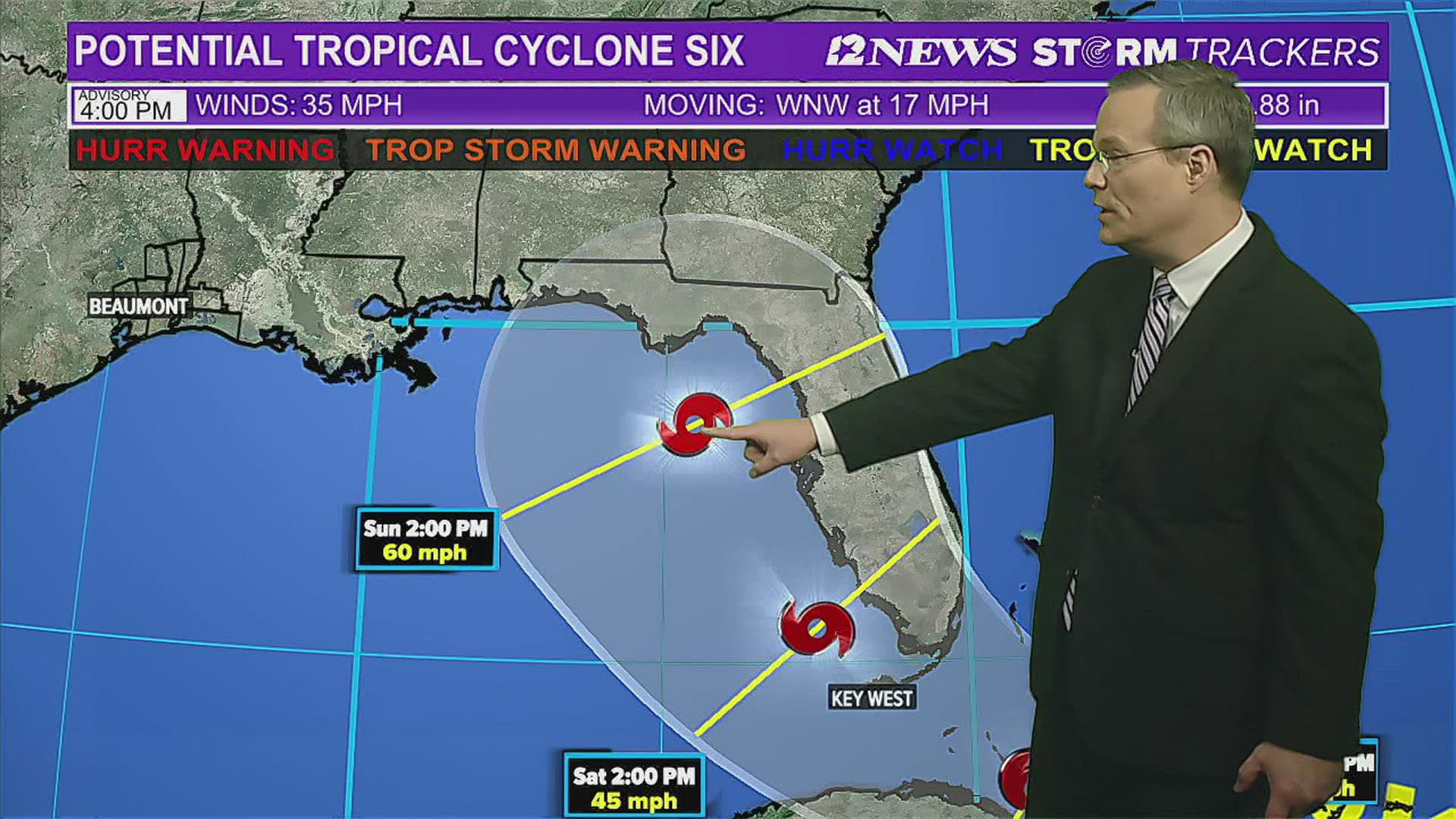BEAUMONT, Texas — The 12News StormTrackers are watching a tropical disturbance that has just moved into the eastern Caribbean. It will likely become Tropical Storm Fred sometime late Tuesday. As of 7 p.m. Tuesday, it remains Potential Tropical Cyclone 6.
It has strengthened and gotten a bit better organized with max winds of 40 mph, but because of its disorganization is not yet a depression.
PTC #6 is forecast to become Fred overnight, make a Dominican Republic landfall Wednesday and then weaken.
Thursday through Friday, it'll parallel Cuba's northern coast and re-strengthen into a tropical storm.
Late Friday, it is forecast to move into the southeast Gulf of Mexico, slow down and start turning north. The big turn is due to a weakness in the subtropical ridge that's currently steering it west-northwest.
The storm is forecast Sunday to further strengthen as it turns north in the Eastern Gulf of Mexico well to our east.
We'll keep watching it as it nudges west/northwest, guided by a high pressure area to its north, but at this time long range models show it curving north around Florida or in the extreme eastern Gulf and then strengthening again.


With undeveloped systems this far out, there is always lots of uncertainty, but for now, there are no imminent threats to our part of the Gulf Coast.
Of course we'll watch closely as activity picks up this month, and we will keep you updated.



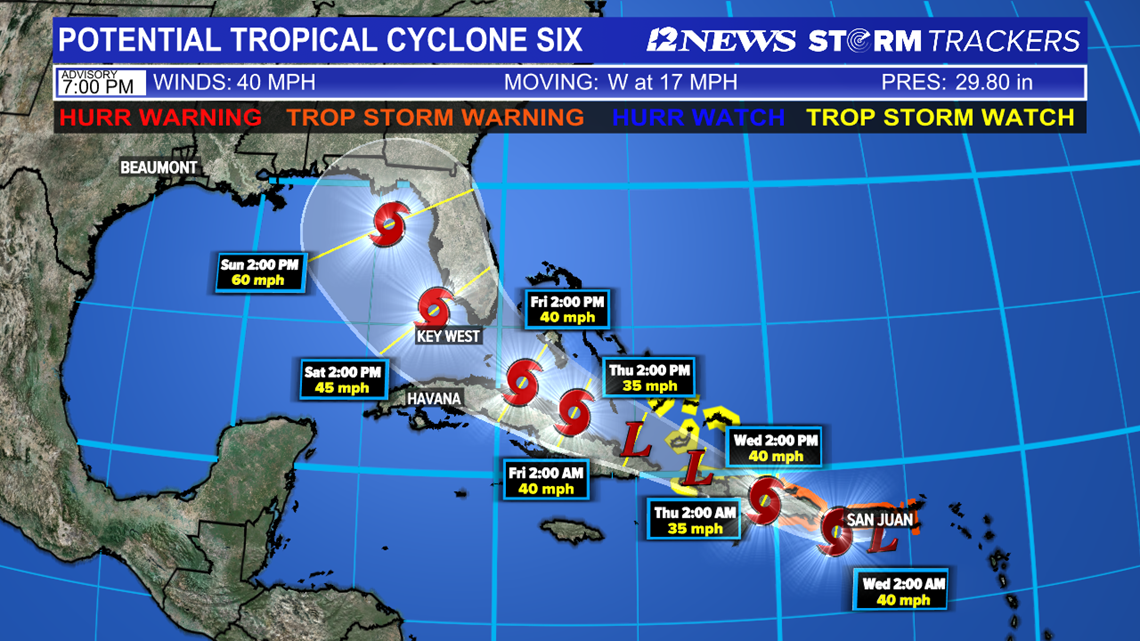
From the National Hurricane Center at 7 p.m. CDT...
At 800 PM AST (0000 UTC), the disturbance was located by an Air Force Reserve reconnaissance aircraft and Doppler radar data from San Juan near latitude 17.6 North, longitude 66.1 West.
The system is moving toward the west near 17 mph (28 km/h) and this general
motion is expected to continue tonight. A turn back toward the west-northwest is forecast to occur early Wednesday, with a west-northwestward motion continuing during the next few days. On the forecast track, the disturbance is expected to pass near the southern coast of Puerto Rico tonight and early Wednesday, be near or over Hispaniola on Wednesday, and be near the southeastern Bahamas and the Turks and Caicos Islands on Thursday.
Data from the aircraft and surface observations indicate that maximum sustained winds have increased to near 40 mph (65 km/h) with higher gusts. Gradual strengthening is forecast during the next day or so and the disturbance is expected to become a tropical storm later tonight. Some weakening is likely while the system interacts with Hispaniola on Wednesday.
* Formation chance through 48 hours...high...90 percent.
* Formation chance through 5 days...high...90 percent.
The estimated minimum central pressure based on data from the
aircraft and earlier surface observations is 1009 mb (29.80 inches).
Tropical-storm-force winds extend outward up to 40 miles (65 km),
mainly northeast of the center. During the past few hours, a
sustained wind of 38 mph (61 km/h) and a gust to 49 mph (79 km/h)
were measured by a Weatherflow observing station at Sandy Point on
the western end of St. Croix. A wind gust to 47 mph (76 km/h) was
reported near Yabucoa in southeastern Puerto Rico..
2021 Hurricane Season Outlook
The 2021 Atlantic Hurricane Season is forecast to produce more storms than average. The reason for this is the lack of El Nino, which typically features more wind shear. We also expect warmer than average sea temperatures and an active West African Monsoon.

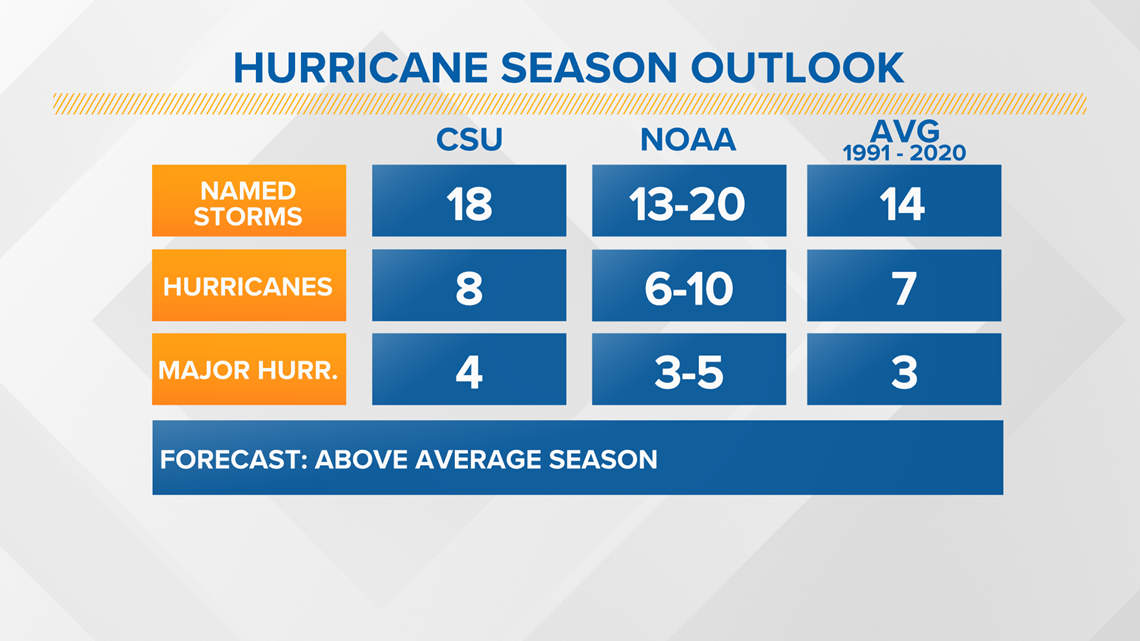
After a record-breaking 2020 hurricane season, we now know the Greek alphabet will no longer be used to name storms.
The World Meteorological Organization announced the Greek alphabet will not be used in the future because it "creates a distraction from the communication of hazard and storm warnings and is potentially confusing."

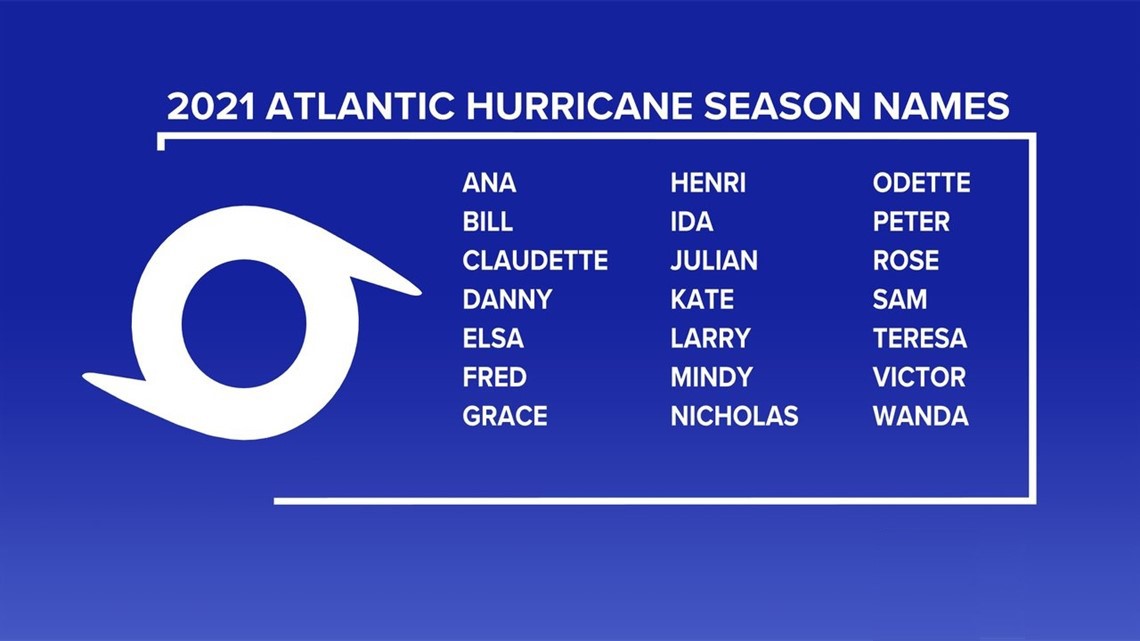
There has been only one other season that used the extra set of names, and that was in 2005. The World Meteorological Organization released a new set of supplemental names that will be used if the season exhausts the standard list.

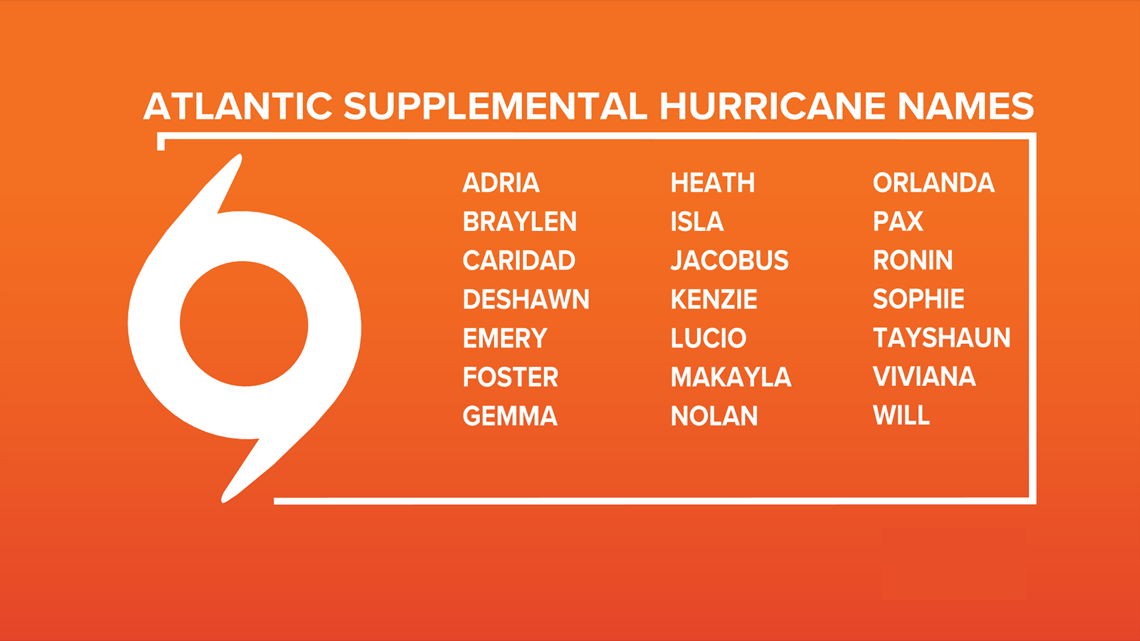
Be prepared if a storm comes our way
BEFORE THE STORM
- Make a home inventory
- Have a current copy of your declarations page that has your policy number and your agent's number
- Review your policy with your insurance agent to determine if you have adequate coverage
- Repair loose boards, shingles, shutters and downspouts to prevent them from becoming an issue in high winds or torrential rain
- Have an evacuation plan, and include plans for your pets
- Make sure your emergency equipment is in working order, including a battery-powered radio, flashlights and extra batteries. Also, make sure to gather all medicine, replenish your first-aid kit and stock a week's worth of non-perishable food and water
- Charge your cell phone and fill your car with gas
- Program all emergency phone numbers
DURING THE STORM
- If you are advised to evacuate, leave as soon as possible. Retain all related receipts - they may be considered in your claim. If you aren't in a recommended evacuation and you plant to stay home, stay informed by listening to weather alerts
- Keep windows and doors closed at all time, and, if possible, board them up with wooden or metal shutters
- Stay away from the windows and in the center of the room, or, stay in an interior room
- Avoid flood water, as it may be electrically charged from downed power lines
- Check on family members and friends
AFTER THE STORM
- Check to be sure your family members are safe
- If you did evacuate, wait for official notice that it is safe to re-enter your neighborhood and your house
- Document damaged property, and take photos and videos. Don't dispose of any damaged items without approval
- Keep a record of any temporary repairs or expenses to prevent further damage to your property.
GET NEWS & WEATHER ALERTS | Download the 12News App to your mobile device

